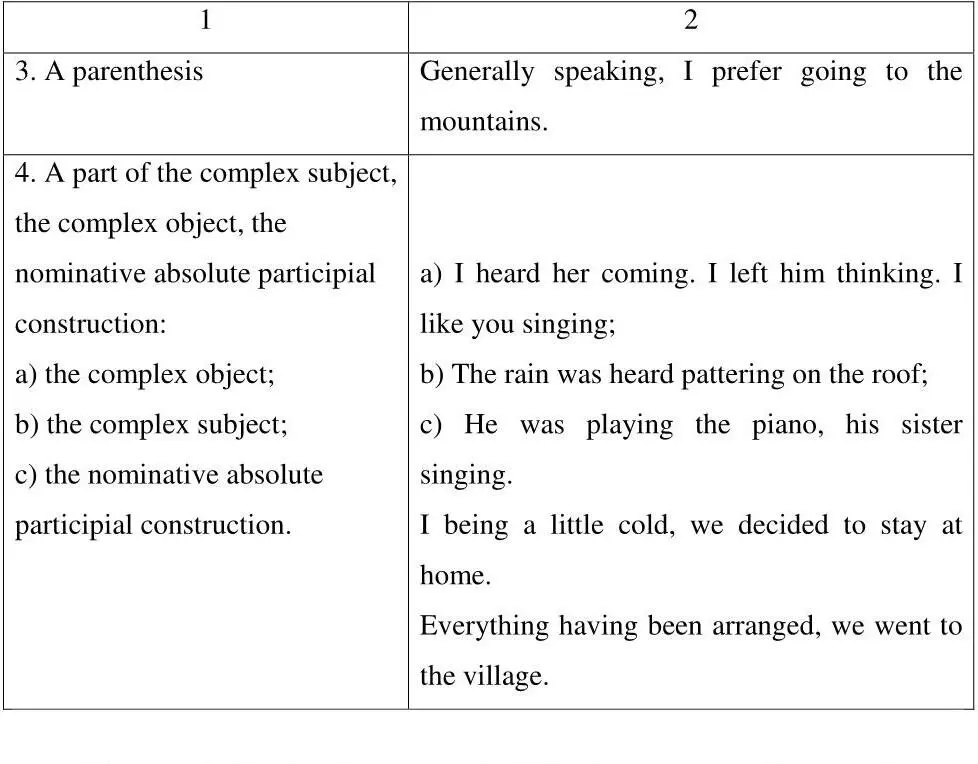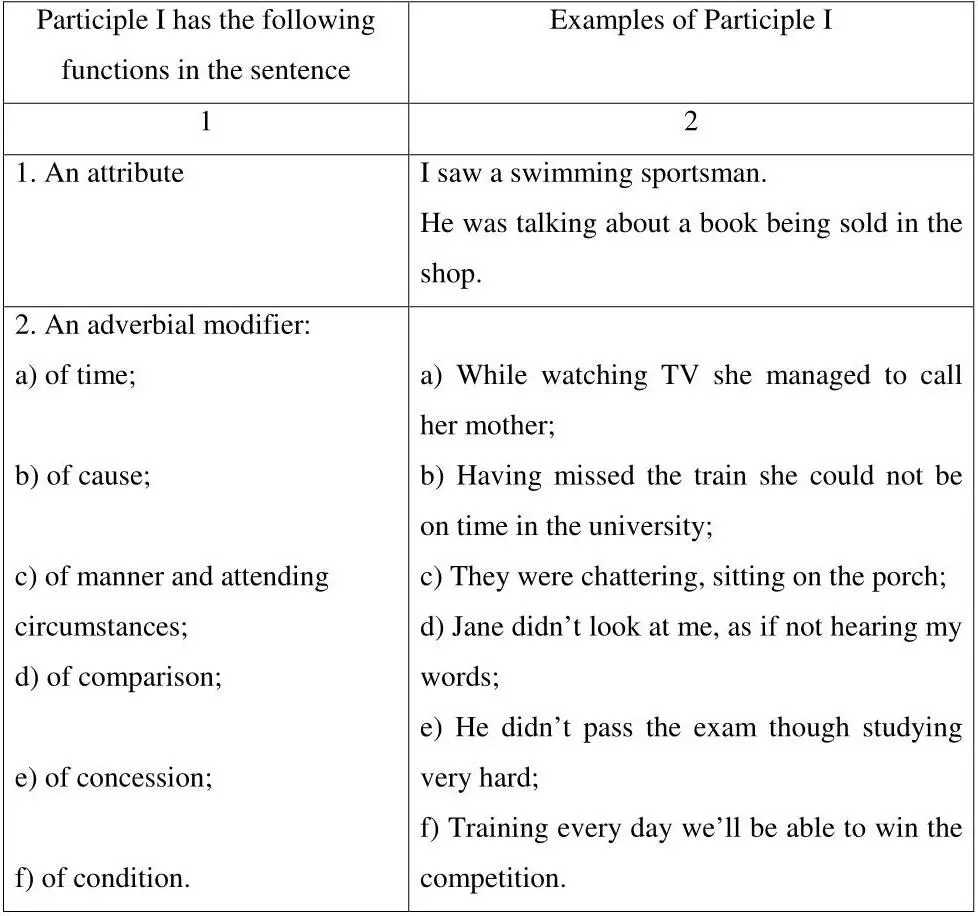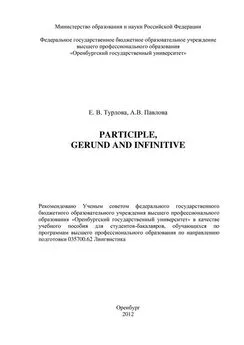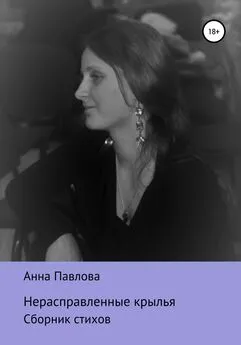Анна Павлова - Participle, Gerund and Infinitive
- Название:Participle, Gerund and Infinitive
- Автор:
- Жанр:
- Издательство:Литагент БИБКОМ
- Год:2012
- Город:Оренбург
- ISBN:нет данных
- Рейтинг:
- Избранное:Добавить в избранное
-
Отзывы:
-
Ваша оценка:
Анна Павлова - Participle, Gerund and Infinitive краткое содержание
Participle, Gerund and Infinitive - читать онлайн бесплатно ознакомительный отрывок
Интервал:
Закладка:
• His sister's eyes fixed on him with certain astonishment obliged him at last to look at Fleur.
Взгляд сестры, устремленный на него с некоторым недоумением, заставил его, наконец, взглянуть на Флер.
• I was reminded of a portrait seen in a gallery.
Мне вспомнился портрет, который я видела в картинной галерее.
In some cases Participle II denotes an action referring to no particular time.
• He is a man loved and admired by everybody.
2.3 The voice distinctions of the participle
Participle I of transitive verbs has special forms to denote the active and the passive voice.
• When writing letters he does not like to be disturbed.
• Being written in pencil the letter was difficult to make out.
• Having written some letters he went to post them.
• Having been written long ago the manuscript-was illegible.
Participle II of transitive verbs has a passive meaning , e. g. a broken glass, a caged bird. Participle II of intransitive verbs has no passive meaning; it is used only in compound tense-forms and has no independent function in the sentence unless it belongs to a verb which denotes passing into a new state, e. g. a withered flower, a faded leaf.
Exercises on the form of Participle I.
Exercise 1. Read the following sentences and analyze the form of participle I.
A. 1. I kept silence for a little while, thinking of what Stroeve had told me. 2. He looked… like a man, who has fallen into the water with all his clothes on, and, being rescued from death, frightened still, feels that he only looks a fool. 3. She was lying in the dark, listening to a piano being played several rooms away. 4. Lisa walked back, wishing to get home in time to cook the dinner. 5. Sally saw the advertisement of a play being acted at the neighboring town. 6. Through the open door came a low, groaning sound, being issued out of the dark mist which covered shore and sea alike. 7. She is working in a laundry on the East Side, trying to keep her child's body and soul together.
B. 1. Having tried various topics of conversation… I asked her to tell me who all the people at table were. 2. She walked down the aisle, not changing her expression, and went to the tail of the plane and sat down there. 3. He started the motor and drove off, waving gaily, to go towards his parents' house … 4. He found the studio without difficulty, having equipped himself, from the hotel letter-rack, with a folding map of Paris. 5. …having inquired the way from one of the group of youths lounging outside the Valley Ice Cream Saloon, he (Andrew) set out for the dentist's house. 6. He went out quickly, shutting the door behind him. 7. She didn't return with us, having been asked to a supper party…
Exercise 2. State whether the action expressed by Participle I is prior to or simultaneous with the action of the finite verb (predicate).
1. Three nights later, Theresa having announced that she would be out for the evening, quickly arranged to have dinner with his mother. 2. But I wasn't listening, absorbing the atmosphere of canvases I now knew so well… 3. "Twenty-five minutes past five," said Mr. Rycrolf glancing at the clock. 4. "Tea," I said, setting the big white cup … in front of him. 5. Buttoning her raincoat up to her throat and knotting a scarf round her hair she went to Victoria Street. 6. Getting up, I ran impulsively across the room and flung my arms round her neck. 7. Waking as the sun crept over his pillow, he yawned, sat up and perceived that another day had arrived.
Exercise 3. Choose the proper form of participle I in brackets.
1. "Nonsense," said Caroline in reply… "You'll see. Ten to one she's left a letter (confessing, being confessed) everything." 2. (Turning, having turned) slowly, holding on to the wall, he dragged his way back into his room. 3. The following evening, (refusing, having refused) Elliot's telephoned order to fetch me; I arrived quite safely at Mrs Bradley's house. 4. (Pushing, having pushed) the people aside, he made his way through the crowd. 5. And for a moment they all three stood silently (looking, being looked) at one another. 6. Quickly (taking, having taken) her handkerchief, she hid her face in it and began to sob brokenheart-edly. 7. (Entering, having entered) his own room, he returned speedily with a heavy bound volume.
Exercise 4. Translate what is given in brackets using participle I in the appropriate form.
1. (Закрыв) the door with only the lightest slam, they went out together. 2. Julia sat eating rolls and drinking coffee in her room next morning, (думая) what she should do. 3. "Come along, quickly," said Nick (держа) the door of the driving cabin, "you're coming too." 4. He got up from his chair and (подойдя) to a shelf brought me a large album. 5. I kept silence for a while, (думая) of what Stroeve had told me. 6. When she had finished she sat (уставившись) in front of her for some minutes.
2.4 Syntactic functions of Participle I
Participle I has the following functions in the sentence:
1) an attribute:
Here is the telegram announcing his arrival. Вот телеграмма, извещающая о его приезде.
• Не came up to the crying child. Он подошел к плачущему ребенку.
2) an adverbial modifier:
a) of time:
As an adverbial modifier of time participle I may be preceded by the conjunctions when, while:
• When listening to her I understood that she was upset. Слушая ее, я понял, что она расстроена;
b) of cause:
• Not knowing his new telephone number I could not get in touch with him.
Так как я не знал его нового телефона, я не мог связаться с ним;
c) of manner and attending circumstances:
• For a moment they stood silently looking at one another.
Какое-то мгновение они молча стояли, глядя друг на друга.
• Не ran up to her, smiling happily.
Он подбежал к ней, счастливо улыбаясь;
d) of comparison:
As an adverbial modifier of comparison the participle is always preceded by the conjunctions as if, as though.
• He peered at me, as if not recognizing.
Он уставился на меня, как будто не узнал меня;
e) of concession:
• Не could not catch up with them though working very hard.
Он никак не мог догнать их, хотя и занимался очень напряженно;
f) of condition:
• Driving at this speed, we'll be there in no time.
Если мы поедем с такой скоростью, мы будем там очень скоро;
3) a parenthesis:
• Frankly speaking, you are wrong. Откровенно говоря, вы не правы.
• Putting it mildly, she was rather rude. Мягко говоря, она была довольно груба;
4) a part of the complex subject, the complex object, the nominative absolute participial construction:
a) the complex object:
The complex object consists of a noun in the common case or a pronoun in the objective case and participle I. The complex object is used after:
– the verbs of physical sense perception (to see, to hear, to feel, to watch, to notice, etc.):
• She watched the children playing in the garden. Она наблюдала, как дети играют в саду;
– the verbs of causative meaning (to get, to set, to leave, to have, etc.):
• Don't keep her waiting. He заставляйте ее ждать;
– the verbs of liking or disliking (to like, to want, to hate, etc.):
• I hate you talking like that.
Мне не нравится, как вы это говорите;
b) the complex subject:
The complex subject consists of a noun in the common case or a pronoun in the nominative case and participle I. It is used with the verbs of sense perception in the passive voice.
• Two people were heard quarrelling. Слышали, как два человека ссорились;
c) the nominative absolute participial construction:
It consists of a noun in the common case or a pronoun in the nominative case and participle I. Nominative absolute participial construction has the function of an adverbial modifier:
– of attendant circumstances:
• He ran into the room, his eyes shining. Он вбежал в комнату с сияющими от счастья глазами;
– of cause;
• It being a hot day, they went to the river. Так как день был жаркий, они отправились к реке;
– of time (occasionally): This having been settled, Bart left them. Когда все было улажено, Барт их оставил.
Table 4 – Syntactic functions of Participle


Exercise 1. Read and translate the following sentences. Pay attention to the function of participle I.
1. At last she left smiling and blowing a kiss from the door. 2. Desmonde came with me to all the matches returning jubilant, to our customary Saturday luncheon. 3. He drove very fast with one hand as though not carrying whether he lived or died. 4. Her aunts sat side by side on the sofa glancing at each other. 5. She stood for a moment fumbling in her bag for her key; then the door opened and vanished inside. 6. Chambers sat watching her till she was out of sight. 7. I walked down to the beach to bathe, and my uncle, having something to do in the town, walked part of the way with me. 8. Driffield worked at night, and Rosie, having nothing to do, was glad to go out with one or other of her friends. 9. I sank down on the sofa, suddenly realizing what had happened. 10. A tenant had made inquiries concerning the house, wishing to rent it.
Exercise 2. Complete the following sentences using participle I in the function of an attribute (A), an adverbial modifier (B), a parenthesis (C).
A. 1. He saw a man… 2. He came up to the child… 3. He went along the street… 4. The room was crowded with students … 5. There were people … 6. He caught sight of a girl… 7. He received a telegram … 8. Don't be very noisy, you'll wake up the child …
B. a) of time:
1. He wrote the letter… 2. When… I visited all the museums there. 3. While … you must be very attentive. 4… I realize that it was wrong. 5… I met a friend of mine.
b) of cause:
1. He kept silence … 2. He found the hotel without difficulty … 3. She didn't return with us … 4. He wasn't listening … 5… they rang again.
c) of manner or attending circumstances:
1. She walked down the hill … 2. He went out quickly … 3. He laughed embarrassed … 4. He stood there … 5. He leant on the windowsill…
d) of comparison:
1. He flung himself his arms round his granny's neck as if … 2. He looked round as if … 3. He raised his head as if … 4. He looked at her with entreaty as though…
Читать дальшеИнтервал:
Закладка:










